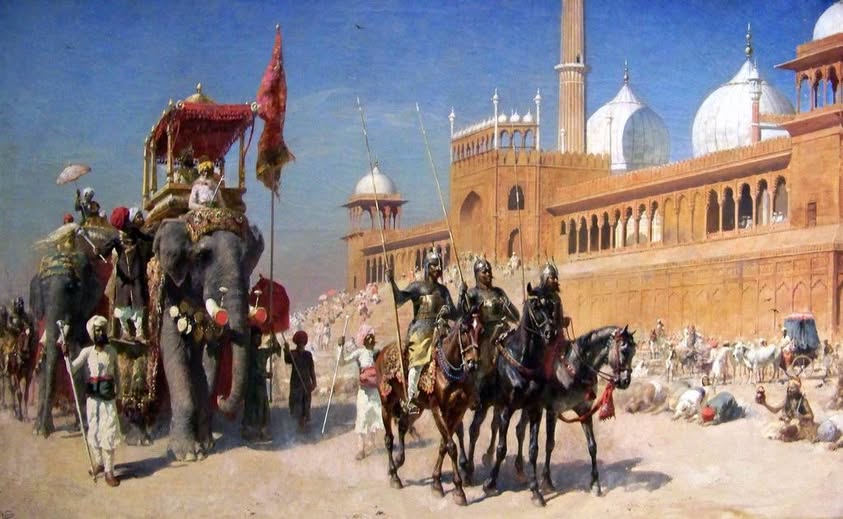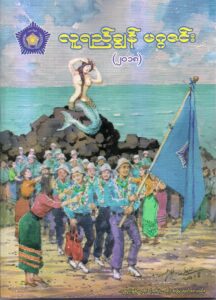History punishes rulers not just for losing wars—but for losing their moral compass.
Two notorious Burmese monarchs—Narathu, infamously known as “Kalar Kya Min”, and the Arakan king who betrayed Shah Shuja—learned this the hard way. Their stories are not just buried in stone inscriptions or palm-leaf chronicles; they echo loudly in the modern crimes of Min Aung Hlaing and Tun Myat Naing, the two warlords responsible for the suffering of Myanmar Muslims today.
Narathu – The “Kalar Kya Min” Who Betrayed All
Narathu seized the Pagan throne by murdering his father, brother, and the trust of the Sangha. After forcing the respected monk Ashin Panzakuma to bless his deception, he poisoned his elder brother, Min Shin Saw, immediately after crowning him. The monk, betrayed and disillusioned, departed the kingdom with a final, damning declaration:
“မင်းဆိုးမင်းညစ်အောက်တွင် ငါမနေပြီ။”
“Under a wicked and defiled king, I shall no longer remain.”
Later, Narathu married a Muslim princess, but killed her in cold blood when she refused intimacy over his unhygienic habits. In return, the Sultan of Pateikkara sent eight assassins, who stabbed Narathu to death inside his own palace—a divine punishment disguised as revenge. From then on, he was remembered as “Kalar Kya Min”, not in honor, but in shame.
Aurangzeb’s Justice and the Fall of Arakan
In 1665, Mughal Prince Shah Shuja fled to Arakan seeking refuge. Instead of offering sanctuary, the Arakanese king murdered him, took his daughter as a concubine, and violated the laws of hospitality and humanity. The Mughal princess, shamed and broken, committed suicide.
Emperor Aurangzeb, enraged by the dishonor to his family and the mistreatment of Muslims, dispatched an army to punish Arakan. That act did more than avenge a death—it set in motion the decline of the Arakanese dynasty, which never regained its former strength or moral legitimacy.
Min Aung Hlaing and Tun Myat Naing: The Modern Echoes
Today, two men in Myanmar bear the same stains as Narathu and the treacherous king of Arakan:
- Min Aung Hlaing, head of the military junta, orchestrated the 2017 genocidal campaign against the Rohingya, leaving hundreds of villages burned, thousands raped or murdered, and over 700,000 exiled across the border.
- Tun Myat Naing, once portrayed as a freedom fighter for the Rakhine people, has now been accused of silently enabling or even participating in the oppression of Muslims, including harassment, forced displacement, and killings in AA-controlled areas.
They may wear uniforms instead of royal robes—but their cruelty mirrors that of the kings who fell before them.
The Moral Thread
What ties these stories across time?
- The murder of Muslims and violation of trust.
- The abuse of power, not in war alone, but in the treatment of the weak, the refugee, the woman, and the religious figure.
- And the inevitable fall that awaits those who build thrones on injustice and blood.
If the killing of one Muslim princess led to the collapse of a dynasty, what fate awaits those who oversaw the slaughter of thousands?
Let History Judge Them All
Narathu died stabbed by strangers because he betrayed his family and killed a Muslim queen.
The Arakan king fell from grace because he dishonored a guest and caused a princess to take her own life.
Min Aung Hlaing and Tun Myat Naing have done far worse—with far more victims. And if history is just, their names, too, will be remembered in infamy, not glory.
“The cries of the innocent are not lost to time. They are heard by history. And by justice.”
Never Again, Never Forgotten
To the people of Myanmar—especially the Muslims and the oppressed—these stories are not just tragic legends. They are warnings.
And to those in power, let them know:
Your guns may silence the people, but history will never forget. And history always takes its revenge.





